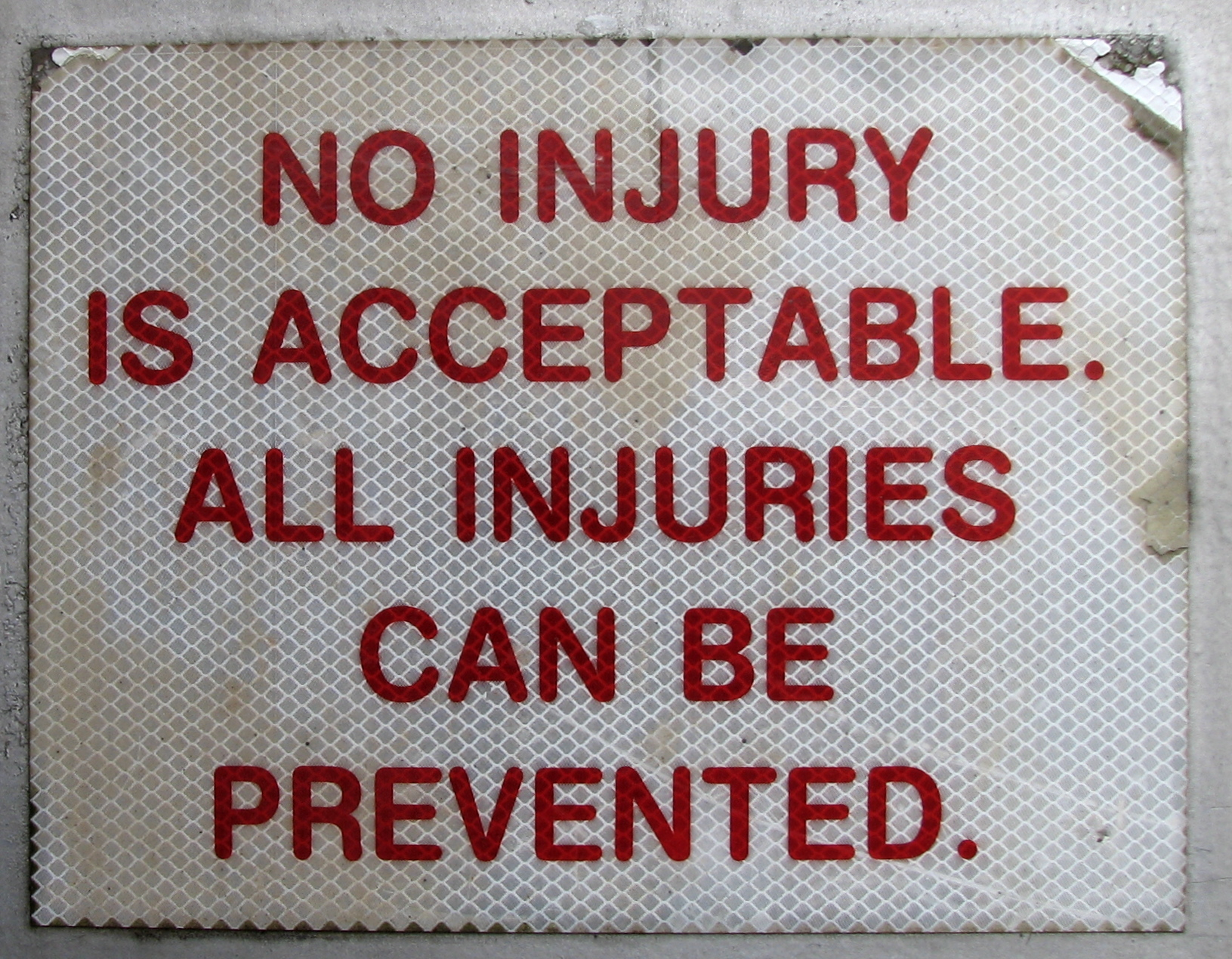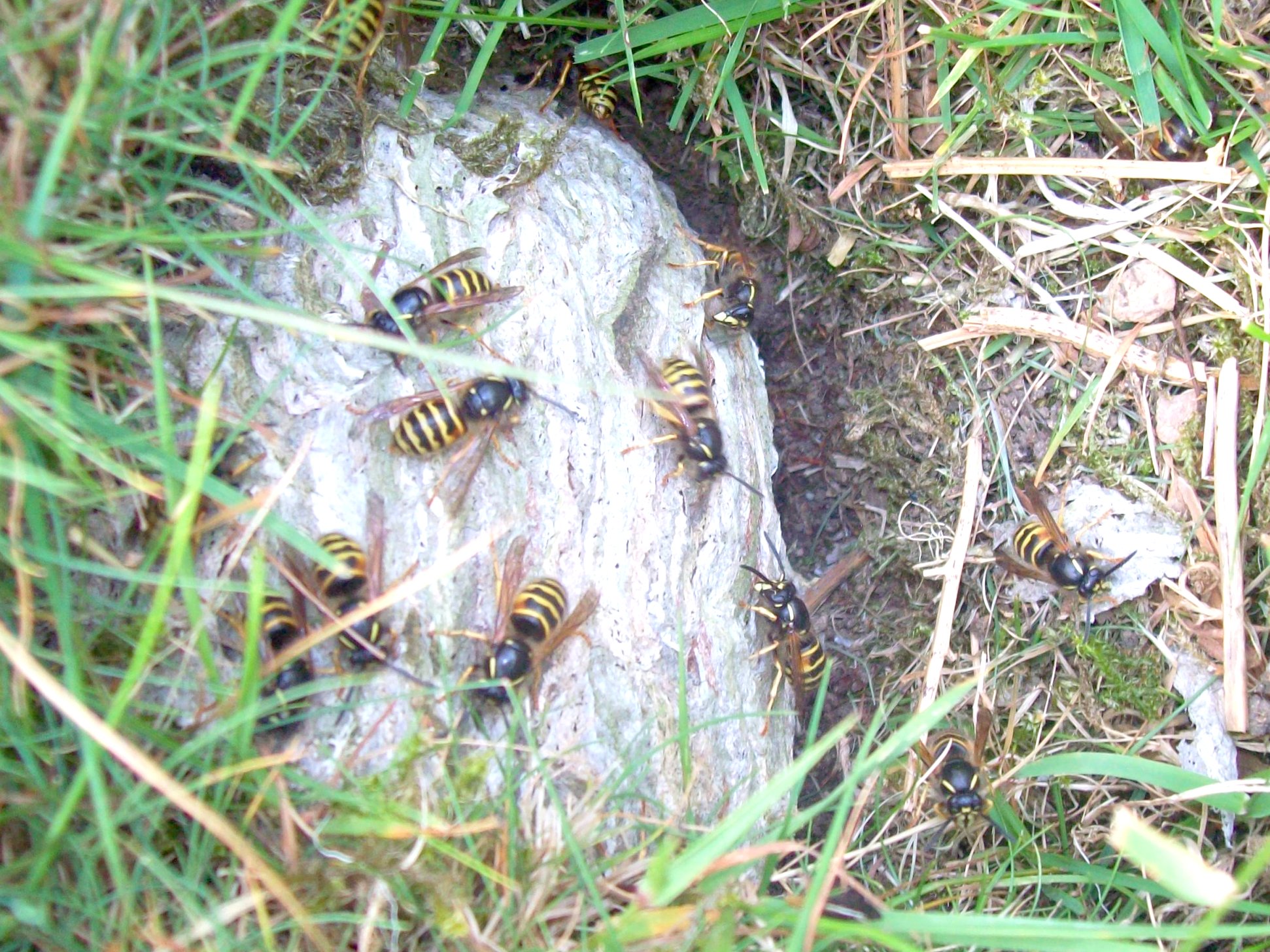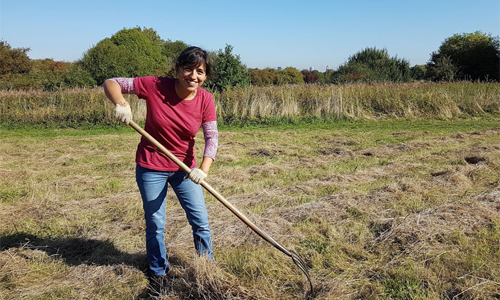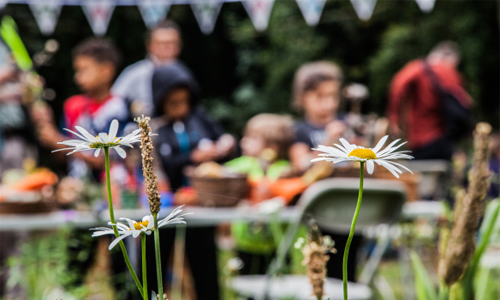
Much of the work that Sutton Nature Conservation Volunteers undertakes can be easily described as ‘risky’. Working with large weights in adverse conditions and hazardous environments is like bread and butter to the volunteers (as long as there’s a cup of tea to go with it). Of course, much care is always taken to ensure these risks are kept at bay, but improvement and acquisition of knowledge is always a good thing, and it was decided that official training in manual handling and risk assessment would be highly useful.
So last Friday a group of core volunteers wrapped up warm and prepared for a day in the chill of Stonecourt classroom. The manual handling training covered everything from the stereotypical ‘how to pick up a box’ procedures, to which protective equipment to use and when to use it, to awareness of gruesome medical complaints stemming from bad manual handling such as slipped discs and hernias – which after seeing some fairly graphic slides, we are fully aware of!
Learning to use the correct manual handling technique is, of course, massively important for people doing the sort of work that we do. Hopefully, as the volunteers who were on the course spread their knowledge to those who weren’t, we can wave goodbye to those familiar post-task day aches and pains, and stave off any potential long term problems.
The afternoon was spent covering Risk Assessment, the art of keeping everyone safe. We harked back to many task days involving unforeseen risks (the nest of angry wasps in a dumped sofa at Carshalton Road Pastures was fondly remembered) – fortunately unable to recollect any times that those risks have caused any serious harm.

Potential for pain (flickr)
Some slightly scary hypothetical situations came to mind though – what if some of the material we’ve found dumped on sites had contained asbestos, or other hazardous waste? On second thought, probably best not to dwell on the past, and instead be sure to consider such things in the future. With proper protective equipment and careful handling, we could mitigate the risks involved.
The risk assessment training has given us all a more critical mindset with which to evaluate how to go about our work. Contrary to the much repeated ‘health and safety gone mad’ cliché, we were encouraged to continue with our work, whether waist deep in muddy ponds, felling large trees, or burning our excess biomass. The whole point of risk assessment is that we now know how to approach these jobs with minimal risk, while still getting the jobs done.
[youtube https://www.youtube.com/watch?v=AB3o9DbH-EM&w=560&h=315]The above video is a great example of someone completely disregarding any risks. He evidently needs to attend a training course!
The SNCV’s task days are currently organised and lead by the London Borough of Sutton Biodiversity team. This is a hugely beneficial partnership, which has allowed both organisations to achieve far more than would have been possible individually.
However, with changes to local government sweeping the country, the SNCV are aware of a pressing need to adapt and grow as a charitable organisation, in order to stay relevant through any potential changes in the coming years. With the first aid training some volunteers received last year, and this manual handling and risk assessment training under our collective belt, we’ve taken another step towards a more independent, autonomous SNCV.
By affording volunteers more responsibility and autonomy, there is the potential for more task days and more events run by the SNCV; with the aim that the SNCV continue to help wildlife on Sutton’s doorstep.
With upcoming task days coppicing at Ruffett and Bigwood, and hedge laying at Anton Crescent wetland, there will be plenty of opportunity to put these skills to the test, approaching these familiar tasks with a new viewpoint and with any luck, a safer technique!







